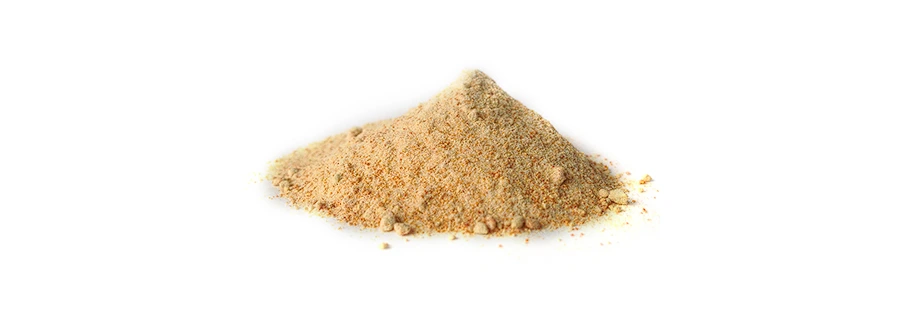Sure! Here’s the rewritten content in English:
---
Have you ever felt drained, unmotivated, or even on the verge of depression? Before reaching for pharmaceutical solutions, consider trying a natural remedy straight from the vibrant landscapes of Africa – Kanna.
Kanna, also known as *Sceletium tortuosum*, is a native South African plant renowned for its uplifting and mood-enhancing properties. Often referred to as the “African miracle,†Kanna can help you break down communication barriers, banish negative thoughts, and boost your energy levels.
What makes Kanna unique? This plant contains active compounds that positively affect your mood and emotional balance. Unlike traditional antidepressants, Kanna offers a gentler, more natural alternative without the harsh side effects typically associated with pharmaceutical drugs.
Nature has given us countless gifts, and Kanna is one of them. For centuries, it has been used to improve mental well-being and elevate mood. Whether you prefer Kanna tea, extracts, or capsules, always ensure you choose a high-quality product and adhere to the recommended dosage.
Before incorporating Kanna or any other natural supplement into your routine, it’s vital to consult with a healthcare provider, especially if you’re taking other medications or have underlying health conditions.
Join the growing number of people who have discovered the natural path to enhanced mood and mental clarity. Experience the power of Kanna – a natural way to brighten your days.

---
### A Small Shrub with a Rich Cultural History
Kanna, or *Sceletium tortuosum*, is a small South African shrub steeped in cultural significance. While there is speculation about its use in prehistoric times, the earliest documented evidence points to its utilization by African tribes such as the Hottentots and the Khoikhoi.
These tribes prized Kanna for both its practical and spiritual purposes. During long hunting trips, they chewed on Kanna to suppress hunger and thirst while staying alert—qualities crucial for successful hunts. Beyond its practical applications, Kanna became integral to traditional ceremonies and healing practices.
In 1662, Dutch explorer Jan van Riebeeck encountered Kanna during his travels across Africa. He noted how the local tribes appeared cheerful and attributed this to their habitual chewing of Kanna. His observations brought the plant to the attention of Western civilization.
By the 19th century, scientists had isolated the active compounds in Kanna, sparking extensive research. Today, Kanna is available in South Africa under the brand name Zembrin by prescription. While its future in global markets remains uncertain, its rich history continues to fascinate both historians and scientists alike.
---
### What Does Kanna Look Like?
Kanna, or *Sceletium tortuosum*, is a typical South African shrub, rarely growing taller than 30 centimeters. Its flowers display a spectrum of colors, ranging from creamy white and yellow to orange and pink. The plant’s green, robust leaves can grow up to five centimeters wide.
One of Kanna’s most striking features is its dried appearance, which resembles a human skeleton—hence its Latin name, *Sceletium*. Local names like "channa" and "kougoed" (meaning "to chew") reflect its traditional consumption method.
Endemic to certain regions of South Africa, particularly around Cape Town, Kanna is sometimes called "kannaland." Efforts to cultivate it elsewhere have been unsuccessful due to its sensitivity to environmental changes. As a result, nurseries near Cape Town now grow Kanna artificially to ensure its availability.
---
### The Effects of Kanna
Kanna, or *Sceletium tortuosum*, is a natural plant offering numerous psychological and nervous system benefits. Its effects include:
- **Mood Enhancement**: Kanna effectively improves overall mental well-being, fostering a sense of happiness and aiding in combating depression.
- **Reduced Anxiety and Stress**: Using Kanna helps alleviate feelings of anxiety, stress, and tension, promoting mental equilibrium.
- **Nervous System Support**: Kanna is beneficial for managing excessive mental and physical stress and aids in the recovery of the nervous system after exhaustion.
- **Social Relaxation and Communicativeness**: Individuals who use Kanna often experience decreased social inhibitions, becoming more open and friendly. At lower doses, Kanna enhances communication, while higher doses may induce feelings of euphoria. However, excessive use can lead to fatigue and drowsiness.
Interestingly, Kanna is not addictive nor does it cause hallucinations. It is considered a safe and gentle alternative to certain pharmaceuticals.
Kanna provides a holistic approach to mental health support and is ideal for those seeking a natural way to enhance their mental state without the risks of addiction or severe side effects.
---
### What Does Kanna Contain?
The primary reason Kanna (*Sceletium tortuosum*) has such positive effects on the human body lies in its rich alkaloid composition. Key alkaloids found in Kanna include:
- **Mesembrine and its derivatives**: Known for boosting serotonin levels in the brain, serotonin being a neurotransmitter crucial for mood regulation and well-being. Higher serotonin levels promote calmness and reduce stress.
- **Other Alkaloids**: Mesembrenone, mesembrenol, and tortuosamine, which also contribute to Kanna’s therapeutic benefits. Studies suggest that these alkaloids might be more effective than some traditional antidepressants like Imipramine or Serex, making Kanna a promising natural alternative for treating depression and anxiety.
---
Stay tuned for more insights on Kanna's journey toward global accessibility!
---
I hope this version meets your requirements! Let me know if you'd like further adjustments.
Aminoglycoside antibiotics in animals,Peptide antibiotics are used in animals,Pharmaceutical Antibiotic Azithromycin
Guangzhou Guangjia Biotechnology Co., LTD , https://www.gjanimalcare.com